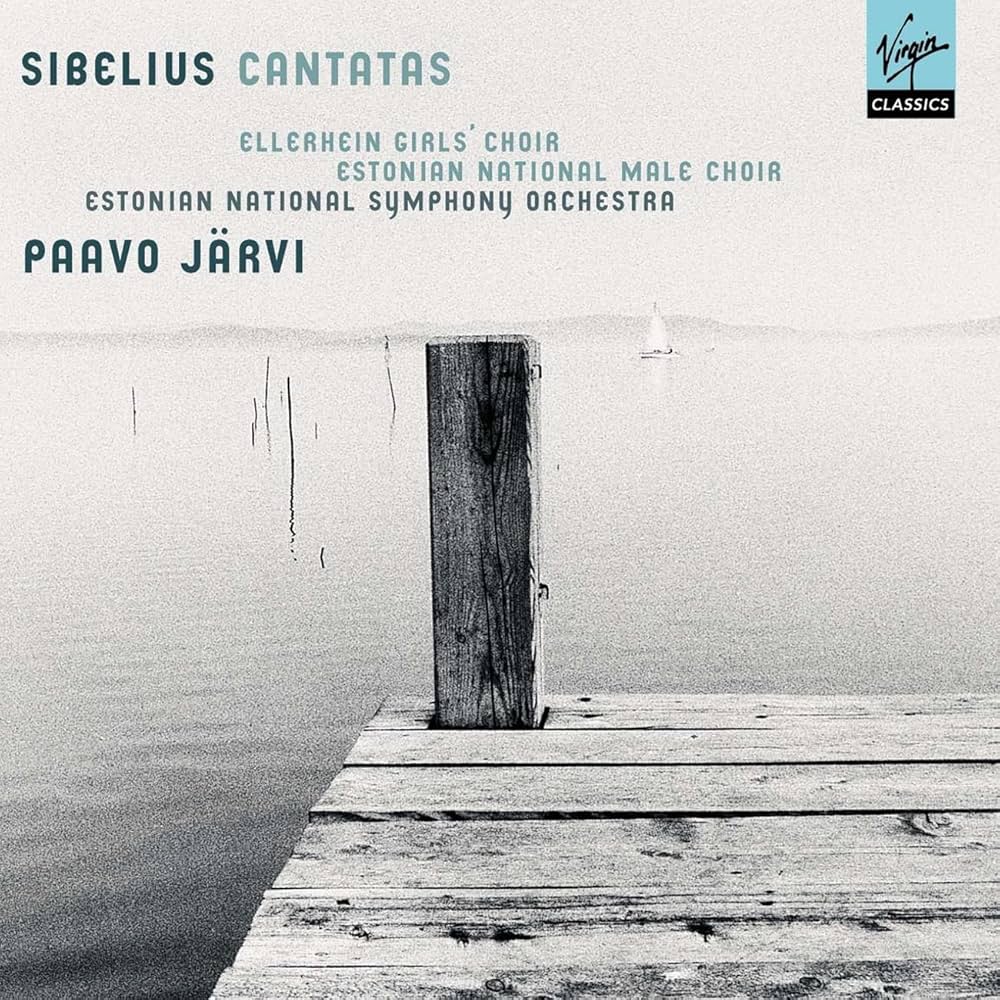Success Through Storytelling
Cantatas often suffer from their occasional status. This is a musical genre where so often institutions request a musical commemoration or dedication from a composer. The music and composers can often be saddled with a pre-chosen text (usually poor) or very specific parameters for performing forces and ability level.
Thus it is difficult for the modern cantata in particular to reach beyond its commission or occasion to exist as a work on its own merits.
Having listened to entire recordings dedicated to the cantatas of Shostakovich and Tchaikovsky, Vaughan Williams and Britten, not to mention the many Prix de Rome competitors to list a couple of examples, few of these choral/orchestral compositions rise to 'masterpiece' status and usually exist in a dark corner to themselves. I would say Britten, of the ones I mentioned above, wrote cantatas which have reached beyond his own homeland and time period consistently and successfully.
Sibelius has these issues too. Like Wilhelm Stenhammar, often his cantatas are patriotic flag wavers, exalting the land and people of his country, possibly in reaction to uprisings and skirmishes known only to a certain latitude and longitude. There is nothing wrong with this, but who other than Finns are going to want to take up a work saluting the people of Finland? Music as a universal language is all of a sudden confined to a very specific place and time, only occasionally aroused outside of Finland by an interest in a composer.
Sibelius has a few things going for him, though: a language confined to a small global population, allowing the music to stand on the merits of its sound rather than their meaning, a largely unexplored ancient mythology to draw interesting subjects from, and a strong orchestral personality.
The two most successful cantatas from Sibelius on this recording, at least for this listener, are ones that ably tell a story, as alluded to in the blog title. Snöfrid and General Sandels does this most effectively, the former excellent at setting its stormy set piece with interesting orchestral colors, while the latter relies on a humorous, yet doughty military character full of personality.
Väinö's Song and Lemminkäinen's Song traverse Finnish mythology, the latter a burly male chorus that is always a lot of fun to hear. I think some of my likes are due to the significant use of both orchestral and choral forces, instead of an extended choral song merely with orchestral accompaniment.
I am less wowed by the choral paeans to Finland in Our Native Land and Hymn to the Earth. The flowery text, wandering musical directions, and plainer orchestrations place these works in the middle ground for me, although the former does try to mix up the choral textures from the standard merely homophonic settings to something more complex; it just goes on a mite too long. Of course, Finlandia will be familiar to one and all. I am not bothered by the overlay of chorus in the hymn portion of this version, although I am not sure what iteration is being used in this recording.
I have no problem with these performances though. Some reviews have taken umbrage with the tone of the female choir on hand, although I find nothing wrong with them other than a youthful quality, which really is rather delightful. Others find issue with the balances as less than ideal. I suppose the orchestra is given a little more weight against the voices, but generally, I have no issues understanding texts or hearing distinct choral parts in any of the works.
I really like the hearty sound of the Estonian National Symphony Orchestra, aided I am sure in no small part by Virgin Classics' engineering, one with strong bass. The opening storm of Snöfrid really took me by surprise, particularly the wild clarinet solo in the opening orchestral portion, but as the recording went by, instrumental qualities were continually high. Paavo Järvi's Finlandia could maybe use some extra snarl, but I doubt that is the reason someone would or wouldn't visit this recording. Perhaps I am wrong...
The chorus is made up of the Estonian National Male Choir and the Ellerheim Girls Choir. The women are lither than a symphonic chorus, and I don't think this aspect hurts these works at all. The men are brawny sounding, imbuing Sandels and Lemminkäinen with plenty of virile sounds. The choral balance is well judged and, as mentioned before, sits opposite the orchestra well enough.
Where else can one find this music? Oddly enough, Ondine has almost this exact same program under conductor Eri Klas with the Finnish National Opera Orchestra & Chorus. I have no doubt this Virgin Classics recording on review with Paavo Järvi and the Estonians is a classier affair opposite a more theatrical approach on Ondine. Of course, Paavo Järvi's father, Neeme Järvi covered many of these works on separate BIS releases, and I would not be surprised if those still held up wonderfully today.
I can't say any of these Cantatas are going to break anyone's musical minds, but this is a quality listen, especially with such fine playing, singing, and engineering. It certainly doesn't hurt that Virgin includes not only the original song texts, but also their translations into German, French, and English.
Works
Snöfrid, op. 29 (11.23)
Oma Maa, op. 92 (11.55)
Väinön Virsi, op. 110 (8.42)
Sandels, op. 28 (9.09)
Maan Virsi, op. 95 (7.41)
Laulu Lemminkäinen, op. 31 no. 1 (3.31)
Finlandia, op. 26 (8.36)
Performers
Ellerhein Girls Choir
Estonian National Male Choir
Estonian National Symphony Orchestra
Paavo Järvi, conductor
Label: Virgin Classics
Year: 2003
Total Timing: 61.34
I find Sibelius to at his best amongst these cantatas when he is in storytelling mode. The performers excel in their characterizations and the orchestra is allowed to let rip alongside the chorus.
The rest are more ordinary, but perfectly lovely listening. Especially as finely performed as they are here.
Find more Sibelius recordings HERE!



Comments
Post a Comment